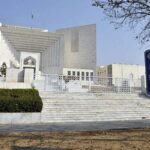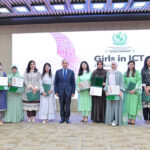ISLAMABAD, Dec 14 (APP): Chairperson of Benazir Income Support Programme (BISP) Marvi Memon said on Monday that Turkish investors could help to raise new businesses from poverty in Pakistan and empower women.
The $1.02 billion BISP is a fund to provide cash to 5.2 million of Pakistan’s poorest families – and with the help of Turkish investment and Turkish businesswomen to act as role models for Pakistani women it could have a greater impact, Marvi Memon said in an interview with Turkish “Anadolu” news agency.
“The aim is specifically to take care of women from a dignity point of view – we do poverty management and the government does poverty alleviation through its various other development projects,” Marvi said.
To help women emerge from poverty and go into business, Marvi has proposed encouraging leading Turkish women entrepreneurs to inspire vulnerable Pakistani women.
“It’s a ‘sisters in success’ concept,” Marvi said. “Women who are leaders, women who are entrepreneurs should be used as role models for the most vulnerable women in our countries. I am looking for collaborating with Turkish role models who can both inspire our women and invest in them.”
In the textile industry, which is one of Pakistan’s major exporters to Turkey, designers in both countries could link up and utilize the skills of vulnerable women in Pakistan.
“Our women produce textiles but they don’t have the market access,” Marvi Memon said. “This is what the designers in both countries can provide.” Marvi, who visited Istanbul over the weekend to address the Bosphorus summit on poverty reduction as well as attend a meeting on violence against women, identified art and medicine as other areas where Turkey and Pakistan could cooperate.
“There is no better way to reach the hearts of the Pakistani people,” she said.
“The Pakistani people see the Turkish people as brothers and sisters. We should employ a people-to-people strategy to connect with the people and government of Turkey.”
The BISP has established 25-strong committees of women across the country to discuss economic development and other issues affecting them such as violence against women.
“It’s a great place for them to come and talk and for us to be able to help them and that is a unique platform,” she said.
The BISP has been greatly helped by Pakistan’s improving economy, according to the chairperson.
“Under the government of Prime Minister Nawaz Sharif, the Pakistani economy is now growing at about the rate of 4.2 percent,” she said.
“This has enabled the current government to adopt a four-fold programme economic growth, putting an end to extremism, securing the energy supply and establishing a full-scale social safety net, of which the BISP is a key part.”
“This has now improved to 11 percent because the economy is now doing well and with the help of new policies by Finance Minister Ishaq Dar,” Marvi added.
Marvi Memon, said the project was among the “five top social safety nets in the world” due to its unique approach.
“The BISP is intended to empower women and the money goes directly to them. We take great pride in this because we are sure the money reaches those who need it,” she said.
The programme is working to improve the way money is provided to women – using national ID cards to eliminate the need to visit a bank, which for some can be a day’s journey from their homes.
“We help the women to get national identity cards, not only for the funds transfers but also so that the women obtain voting rights, thus achieving political empowerment for them,” she said.
“We are the only ones in the country who have the national electronic registry, linked to the ID card database, which makes us unique in the world
as well.” As well as providing the funds for women to feed their families, the BISP also delivers the finance to ensure children attend school in a move to combat child labor.
“It’s a two-pronged strategy to end poverty,” Marvi said.
“The funds we provide ensure proper nutrition for their children without which they would die.” This allows women to harness their skills, set up businesses and hire others.
“If a woman gets a loan, she can buy some sewing machines and then give jobs to other women. Women can also buy livestock, agricultural assets like that. So they can exit poverty.”
Calling on Turkish investors – who have been attracted to Pakistan’s energy and infrastructure projects – to implement corporate social responsibility programmes, Marvi said: “Turkish companies should use our database to target the most poor. Whatever their projects are, they should use our database to reach the people who need it most.”





